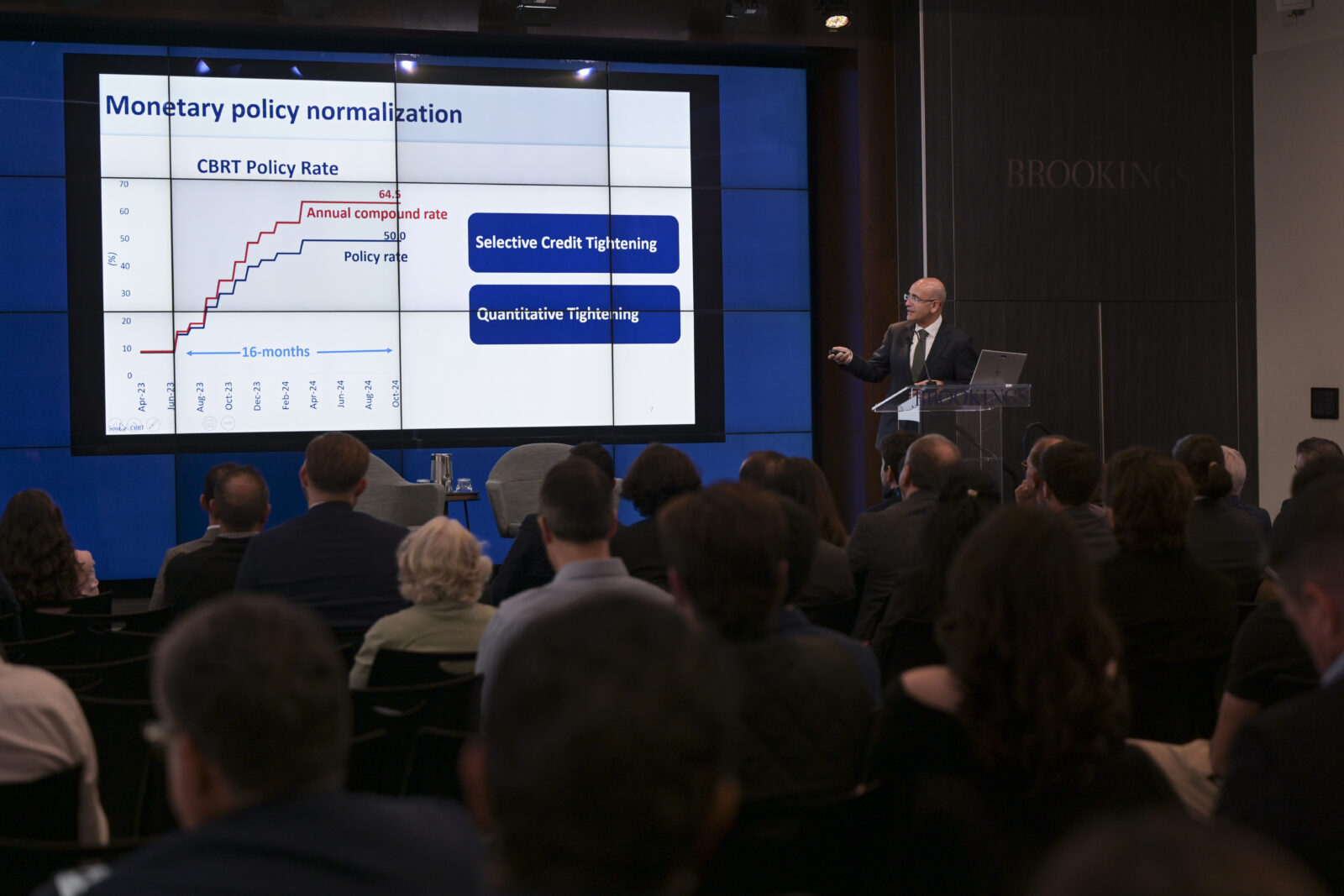
Türkiye’s financial indicators reflect the stabilizing effects of new monetary policies under Finance Minister Mehmet Simsek, marked by a surging stock exchange, the resumption of short-selling transactions, and a drop in credit default swaps (CDS) below 250 basis points amid improving inflation and interest rate cut expectations.
Türkiye’s five-year credit default swap (CDS), a measure of insurance against borrower default risks, dropped below 250 basis points for the first time since February 2020.
As of the last trading day this week, Dec. 6, the five-year CDS stood at 249.8, continuing its steady decline from a peak of 908.4 basis points in June 2022.
Additionally, the three major international credit agencies—Moody’s, S&P and Fitch Ratings—have revised Türkiye's ratings upward, citing significant stabilization efforts, as reflected in the following table:
| Rating agencies | Türkiye sovereign credit rating | Outlook |
| Fitch | BB- | Stable |
| Moody’s | B1 | Positive |
| S&P | BB- | Stable |
Finance Minister Mehmet Simsek discussed the decline in Türkiye’s credit default swap (CDS) rate in a post on X, calling it “one of the most tangible indicators of confidence in our economic program and its achievements.”
Simsek highlighted that in May 2023, the average CDS rate was 49 basis points in developing countries, while it stood at 456 basis points in Türkiye.

“Thanks to our improved risk premium, access to external financing is becoming easier, and the cost of external financing is decreasing,” Simsek added.
Borsa Istanbul (BIST), Türkiye’s stock exchange market, elevated its BIST 100 index to 10,081 by the close of trading this week. This marks a 34.9% annual increase from the 7,470 level, with an additional 4.4% appreciation recorded last week.
In light of these improvements, the Capital Market Board of Türkiye announced that restrictions on short-selling transactions, initially enacted on Feb. 6, 2023, to prevent market manipulation, will be lifted on Jan. 2, 2025. This policy change will enable traders to sell borrowed assets, anticipating price drops and repurchasing them at lower prices, signaling a more confident market environment.

As part of its fight against inflation, Türkiye implemented a series of monetary tightening measures, maintaining interest rates at the 50% level for eight consecutive months since March 2024 under its disinflation program.
While inflation in November stood at 47.09% with a 2.24% monthly increase—0.2 percentage points above the Central Bank of the Republic of Türkiye’s (CBRT) projection—December is still expected to mark the start of an interest rate cut cycle, according to global financial institutions.
According to the November 2024 Survey of Market Participants conducted by the Central Bank, further predictions point to a gradual rate cut cycle as follows:
Key drivers of this progress include improvements in the balance of payments, record-high foreign exchange reserves, and normalization steps undertaken by key economic institutions, including the CBRT.
These developments have bolstered market confidence and fueled increased foreign interest in Turkish lira (TRY)-nominated assets, contributing to reduced borrowing costs.